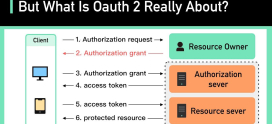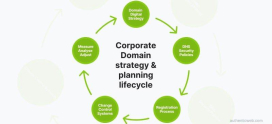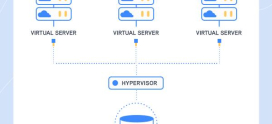
Understanding the Basics of DNSSEC
In an increasingly digital world, many of us find ourselves asking the same question: How do we ensure that our online interactions, from banking to browsing, are secure? If you’ve ever wondered why you should care about website safety or how to protect yourself in this vast cyber landscape, you’re not alone! The rise in data breaches and cyber attacks can feel overwhelming. You might often hear terms like ‘DNS’, ‘security’, or ‘protocols’ and feel lost. It’s frustrating, right? But don’t fret! We’re here to break down one of the key pieces of online security: DNSSEC.
DNSSEC, short for Domain Name System Security Extensions, sounds complicated, but it’s not as daunting as it seems. Think of it as the security guard at a concert. Just like a guard checks your ticket to ensure you can enter the venue, DNSSEC checks the authenticity of website addresses to make sure you’re going to the correct site and not a malicious one. By understanding DNSSEC, you can take proactive steps toward a safer online experience. So, let’s dive in and explore what DNSSEC really is, why it’s important, and how it can help you stay secure.
What is DNS?
The Domain Name System (DNS) functions like the phone book of the internet. When you type a web address into your browser, DNS translates that human-friendly name into an IP address, which computers use to identify each other on the network. For example, when you enter “www.example.com,” DNS helps your device find the numerical IP address it needs to connect to that website.
Why Does DNS Need Security?
Now that we understand what DNS is, let’s discuss why it needs extra protection. Imagine you’re trying to reach your favorite online store, but instead, you end up on a fraudulent site. This can happen due to a process called “DNS spoofing,” where a malicious actor alters DNS records to divert your traffic. This exploitation can lead to a range of issues, including data theft, financial loss, and more. Hence, ensuring the integrity and authenticity of the DNS is crucial.
What is DNSSEC?
DNSSEC adds a layer of security on top of the regular DNS by verifying the authenticity of the responses it receives. In our earlier analogy, think of DNSSEC not just as the security guard but also as a ticket verification system that ensures the ticket is legitimate and has not been tampered with. It uses digital signatures to provide a way to check whether the response to your DNS queries is legitimate, enhancing the security of the DNS infrastructure.
How Does DNSSEC Work?
The Key Elements of DNSSEC
At its core, DNSSEC relies on public key cryptography. Here’s a simplified breakdown of how it works:
- Digital Signatures: DNS records are signed with a cryptographic signature. When you request a DNS record, your resolver checks this signature to confirm it’s valid.
- Chain of Trust: Each level of the DNS hierarchy trusts the levels below it, ensuring integrity from the root DNS servers to the authoritative servers.
- Validation: If the signature is valid, the resolver returns the IP address. If it’s not, it will reject the response.
Benefits of DNSSEC
Now that we have a grasp of what DNSSEC is and how it operates, let’s discuss its benefits:
- Enhanced Security: DNSSEC greatly reduces the risk of cache poisoning and other DNS attacks.
- Data Integrity: It ensures the data received is precisely what was intended, safeguarding against unauthorized changes.
- User Trust: Websites utilizing DNSSEC inspire more confidence in their online dealings.
- Protection for All Users: By securing the DNS infrastructure, all users benefit, regardless of their awareness of DNSSEC.
Challenges of Implementing DNSSEC
Like any technology, DNSSEC is not without its challenges:
- Complexity: Implementing DNSSEC can be technically complex, requiring a good understanding of cryptography.
- Inconsistent Adoption: Not all DNS providers or registrars support DNSSEC, leading to gaps in protection.
- Overhead: The additional processing time and data transfer can slightly slow down DNS queries.
Real-World Application: A Case Study
Let’s consider DarazHost, which has successfully integrated DNSSEC into its services. By implementing DNSSEC, DarazHost provides its customers with an additional layer of security that reduces phishing attempts and enhances data integrity when accessing hosted websites. This has not only improved user trust but has also positioned DarazHost as a reputable service provider committed to web security. This example illustrates how practical DNSSEC can be in the real world!
Frequently Asked Questions (FAQs)
What is DNSSEC and how does it work?
What is DNSSEC and how does it work?
DNSSEC (Domain Name System Security Extensions) enhances DNS security by allowing validating resolvers to verify the authenticity and integrity of DNS replies through digital signatures.
Why is DNSSEC important for website owners?
DNSSEC is crucial for website owners as it helps protect their sites from malicious attacks that can redirect traffic, steal personal information, or damage reputation.
Can DNSSEC prevent all cyber threats?
While DNSSEC significantly enhances security, it does not protect against all cyber threats. It’s one part of a broader security strategy for combating various attacks.
How can I implement DNSSEC for my domain?
To implement DNSSEC, you should first ensure your DNS provider supports it. Then, follow their specific steps for signing your zones and publishing the keys.
Are there any downsides to using DNSSEC?
Some downsides include increased complexity in setup and management, as well as challenges in transitioning to full adoption across various platforms.
Does using DNSSEC affect website speed?
DNSSEC adds a slight overhead due to the cryptographic operations, but the impact on website speed is often negligible compared to the added security.
What happens if my DNSSEC key is compromised?
If a DNSSEC key is compromised, attackers can generate false responses that could mislead users. Regular key rotation and management practices help mitigate this risk.
Conclusion
In a world where cyber threats lurk around every corner, understanding and implementing security measures like DNSSEC is vital. By taking steps to secure your online presence, you not only protect yourself but also build a safer internet for everyone. Feeling overwhelmed? You don’t have to be! The more you learn, the better equipped you’ll be to navigate the digital landscape. So, take a moment today to explore DNSSEC further and consider how it can safeguard your online activities. Remember, you have the power to create a more secure online environment for yourself and your loved ones!









